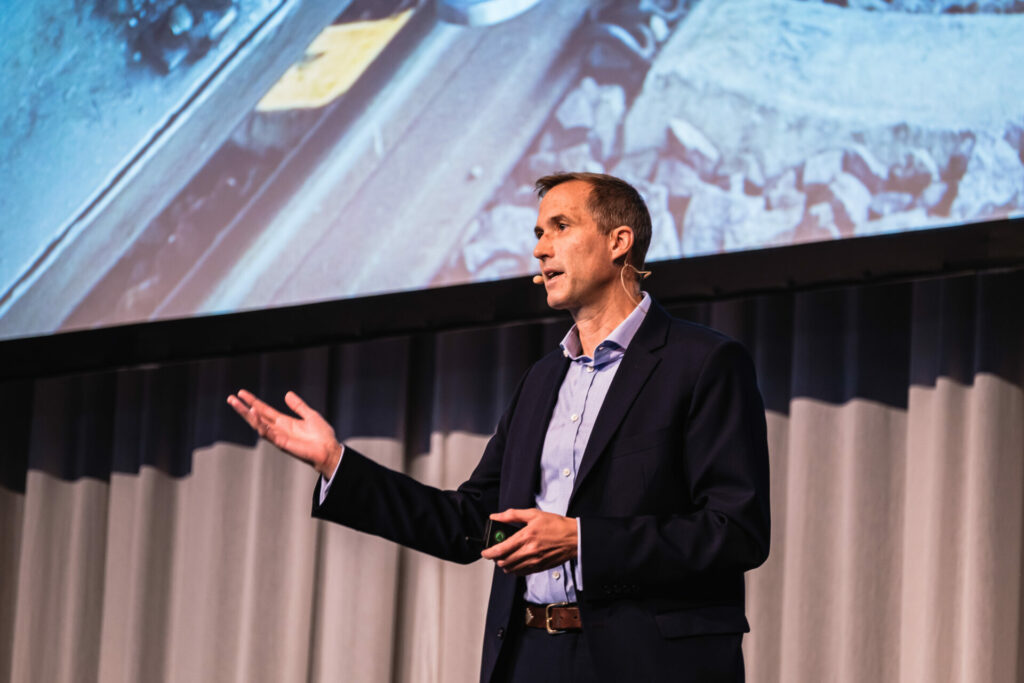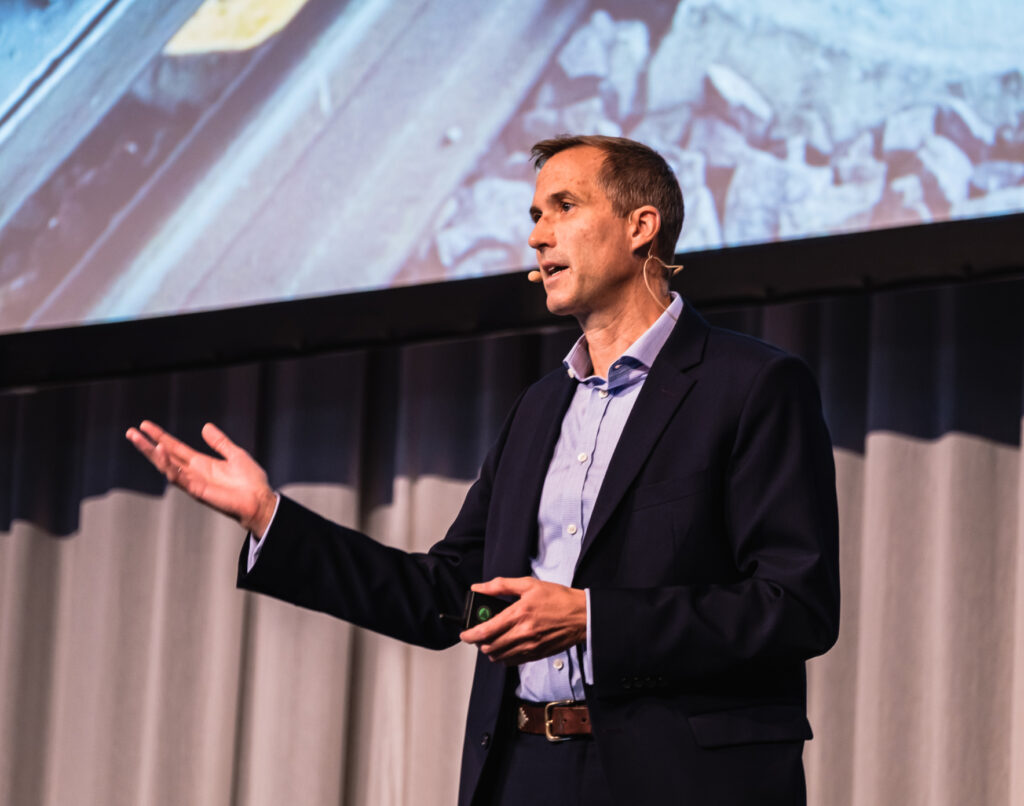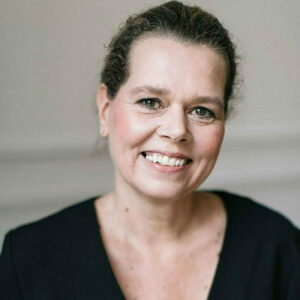Sustainability and technology – for Oliver von Sperber those two areas are inseparable. Find out what motivated the entrepreneur to get involved in the digitalisation of rail with AXO.
Oliver von Sperber has no use for rail bashing. “There are many highly motivated employees at Deutsche Bahn who work hard to increase the performance of the railway with limited budgets and time windows,” he says. He adds that it is now difficult to make up for the (political) failures of the past decades and to rehabilitate and expand during ongoing operations. “Even on the motorway there are traffic jams when two lanes are closed for construction work,” Oliver continues.
The need to catch up is there. Since 1995, freight transport by rail has increased by 80 percent and passenger transport by over 40 percent. At the same time, the rail network has been reduced by 15 percent. In addition to the expansion of the rail network, von Sperber sees digitalisation as a decisive building block for more trains and higher punctuality.
This means a challenge for maintenance. With AXO, Oliver von Sperber has therefore dedicated himself to precisely this topic. By using an IoT sensor system, railway operators can reduce their maintenance costs, increase safety and optimise their operational performance. In the medium term, they lay the foundation for increasing frequencies and capacities on the railways – a must for the success of the traffic turnaround, especially against the background that the federal government wants to bring twice as many passengers into the compartments and significantly more freight traffic onto the rails by 2030.
From forestry science to sensor technology
Yet his path into the industry was by no means direct. As the son of a forester, Oliver von Sperber grew up in close contact with nature. Even as a child, he loved to roam through the forests and spend the night in the open air. Naturally, he first studied forestry in Munich and then went on to study economics in Witten/Herdecke. Internships accompanying his studies took him to South Africa and China, among other places. He fought forest fires in Oregon, USA, and did research on a DEG-funded project in the Amazon forest in Brazil.
His knowledge of the dynamics of the ecosystem and his understanding of the role of the forest for the climate, society and the economy have left their mark on him. For example, Oliver contributed an article on sustainable development to the book “Umwelt unternehmen: Das Leitbild nachhaltigen Wirtschaftens – Konzepte und Beispiele aus der Unternehmenspraxis” [Environment Enterprise: The Guiding Principle of Sustainable Management – Concepts and Examples from Corporate Practice], published in 1997 by Andreas Bieringer, Katrin Paschke and Andreas Pollner at Campus Verlag.
Oliver’s professional career initially took him to Corporate Finance and M&A at Berenberg Bank in Hamburg. Fascinated by the new opportunities of the internet and the booming venture capital industry in Germany, he founded the technology investment bank Carlsquare (then CatCap), which he led as Managing Partner for six years.
He then invested in a sensor start-up for the mobile phone industry. Although this investment proved risky and did not pay off, Oliver gained valuable experience and knowledge in business planning. From this experience, he founded BeST Sensor, a startup that develops customised IoT sensor systems.
Among other things, Oliver and his team developed predictive maintenance systems for Deutsche Bahn. In the course of this, Oliver gained deeper insights into the challenges of the global railway industry. The idea to found AXO was then born.

High demands during development
Access to the fully equipped laboratory at NBT AG also enables the complex tests to be carried out in-house. The railway industry has the highest requirements for the quality of components: before a product is approved, it must undergo numerous testing and certification procedures. This is the only way to ensure the highest safety standards and reliable system performance in railway operations. This includes climatic, mechanical-dynamic, corrosive and electrical tests, which ensure that the systems meet the extreme conditions on the rail. “We prioritize the quality of our sensors above all else,” states Oliver, who personally oversees the rigorous testing process.
“Sensor technology will play crucial role in decarbonisation”
Oliver feels at home in the field of digitalisation and sensor technology in particular. For him, it holds the key to the future, enabling excellence in production, predictive maintenance and automated services. This has a positive impact on customer value and also saves important resources. “I am convinced that the sensor technology will play a crucial role in the transition process of decarbonisation and fundamentally change many industries,” he says.
AXO is no exception. The need for innovative solutions to climate change is greater than ever, especially in the areas of transport and mobility. To this end, digitalisation is an essential prerequisite for shifting traffic from road to rail. Society also benefits from this. Oliver’s goal: “Rail travel must become the first choice for us customers – instead of cars or planes.”
Network with Oliver von Sperber on LinkedIn und follow AXO Track to never miss any news.


